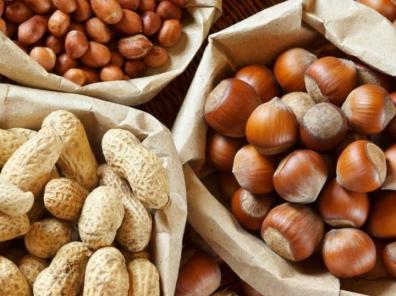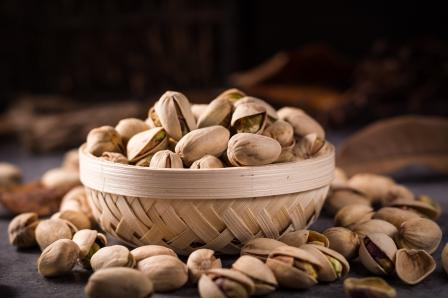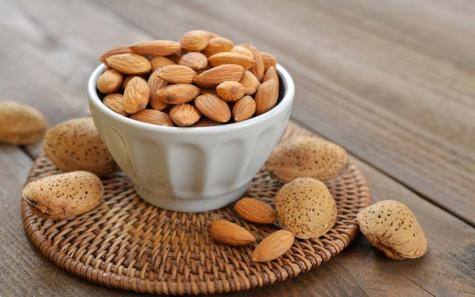In the realm of nuts, peanuts often take center stage for their versatility, affordability, and widespread availability. These humble legumes pack a powerful nutritional punch and are a common snack enjoyed in various forms around the world. While most of us are familiar with roasted peanuts, the raw version is often overlooked. Raw peanuts are a treasure trove of nutrients, boasting an impressive array of health benefits. In this comprehensive guide, we will delve into the world of raw peanuts, exploring their nutritional profile, health advantages, culinary uses, and much more. **Nutritional Profile of Raw Peanuts** Raw peanuts are rich in essential nutrients that contribute to overall health and well-being. They are an excellent source of plant-based protein, making them a valuable addition to vegetarian and vegan diets.
.
A 1-ounce (28g) serving of raw peanuts contains approximately 7 grams of protein, along with healthy fats, fiber, and various vitamins and minerals. They are particularly high in monounsaturated fats, including oleic acid, which is beneficial for heart health. Furthermore, raw peanuts are a good source of magnesium, a mineral that plays a crucial role in numerous bodily functions, including muscle and nerve function, blood sugar regulation, and blood pressure control. They also contain folate, a B-vitamin essential for cell division and DNA synthesis, as well as niacin, a key nutrient for energy production and metabolism. In addition to protein and essential vitamins and minerals, raw peanuts are packed with antioxidants, including resveratrol and flavonoids, which help combat oxidative stress and inflammation in the body.
..
These antioxidants have been linked to a reduced risk of chronic diseases, such as heart disease, cancer, and neurodegenerative disorders. **Health Benefits of Raw Peanuts** The consumption of raw peanuts is associated with a myriad of health benefits, thanks to their impressive nutritional profile. Here are some of the key advantages of incorporating raw peanuts into your diet: 1. **Heart Health:** The monounsaturated fats in raw peanuts can help lower LDL (bad) cholesterol levels and reduce the risk of heart disease. Additionally, the presence of resveratrol, a potent antioxidant, has been shown to support cardiovascular health by improving blood flow and reducing inflammation. 2. **Weight Management:** Despite being calorie-dense, raw peanuts can aid in weight management due to their high protein and fiber content. Protein and fiber promote feelings of fullness, which can help curb cravings and prevent overeating. 3. **Blood Sugar Control:** The combination of protein, healthy fats, and fiber in raw peanuts helps slow down the digestion and absorption of carbohydrates, leading to stabilized blood sugar levels. This can be particularly beneficial for individuals with diabetes or insulin resistance. 4. **Brain Health:** The niacin and other nutrients present in raw peanuts support brain function and cognitive health. Niacin plays a crucial role in neurotransmitter synthesis, while other compounds like resveratrol protect brain cells from damage. 5. **Gut Health:** The fiber in raw peanuts acts as a prebiotic, feeding the beneficial bacteria in the gut and promoting a healthy microbiome.
…
A balanced gut microbiota is essential for digestive health, immune function, and overall well-being. **Culinary Uses of Raw Peanuts** Raw peanuts can be used in a variety of culinary applications to add flavor, texture, and nutrition to dishes. Here are some creative ways to incorporate raw peanuts into your meals: 1. **Trail Mix:** Create your own trail mix by combining raw peanuts with dried fruits, seeds, and dark chocolate chunks. This portable snack is perfect for hiking, road trips, or midday cravings. 2. **Homemade Nut Butter:** Blend raw peanuts in a food processor or high-speed blender to make creamy peanut butter. Add a touch of honey, salt, or cinnamon for extra flavor. 3. **Stir-Fries:** Toss raw peanuts into stir-fries for a crunchy texture and nutty flavor. They pair well with vegetables, tofu, chicken, or shrimp. 4. **Salads:** Sprinkle chopped raw peanuts over salads for added protein and crunch. They complement both leafy green salads and grain-based salads. 5. **Curries:** Ground raw peanuts can be used as a thickening agent in curries and sauces. They impart a rich, creamy texture and enhance the flavor of the dish. 6. **Baked Goods:** Incorporate raw peanuts into baked goods such as cookies, muffins, and energy bars for a nutritious boost. They can be chopped, crushed, or used whole, depending on the recipe. **Purchasing and Storing Raw Peanuts** When purchasing raw peanuts, opt for varieties that are free from added salt, sugar, or preservatives. Look for organic options if possible to minimize pesticide exposure. Raw peanuts can be found in the bulk bin section of grocery stores, health food stores, or online retailers. To ensure freshness and prevent spoilage, store raw peanuts in an airtight container in a cool, dry place, away from sunlight and moisture. They can also be stored in the refrigerator or freezer for extended shelf life. Proper storage helps maintain the quality and flavor of raw peanuts for longer periods.




Your comment submitted.